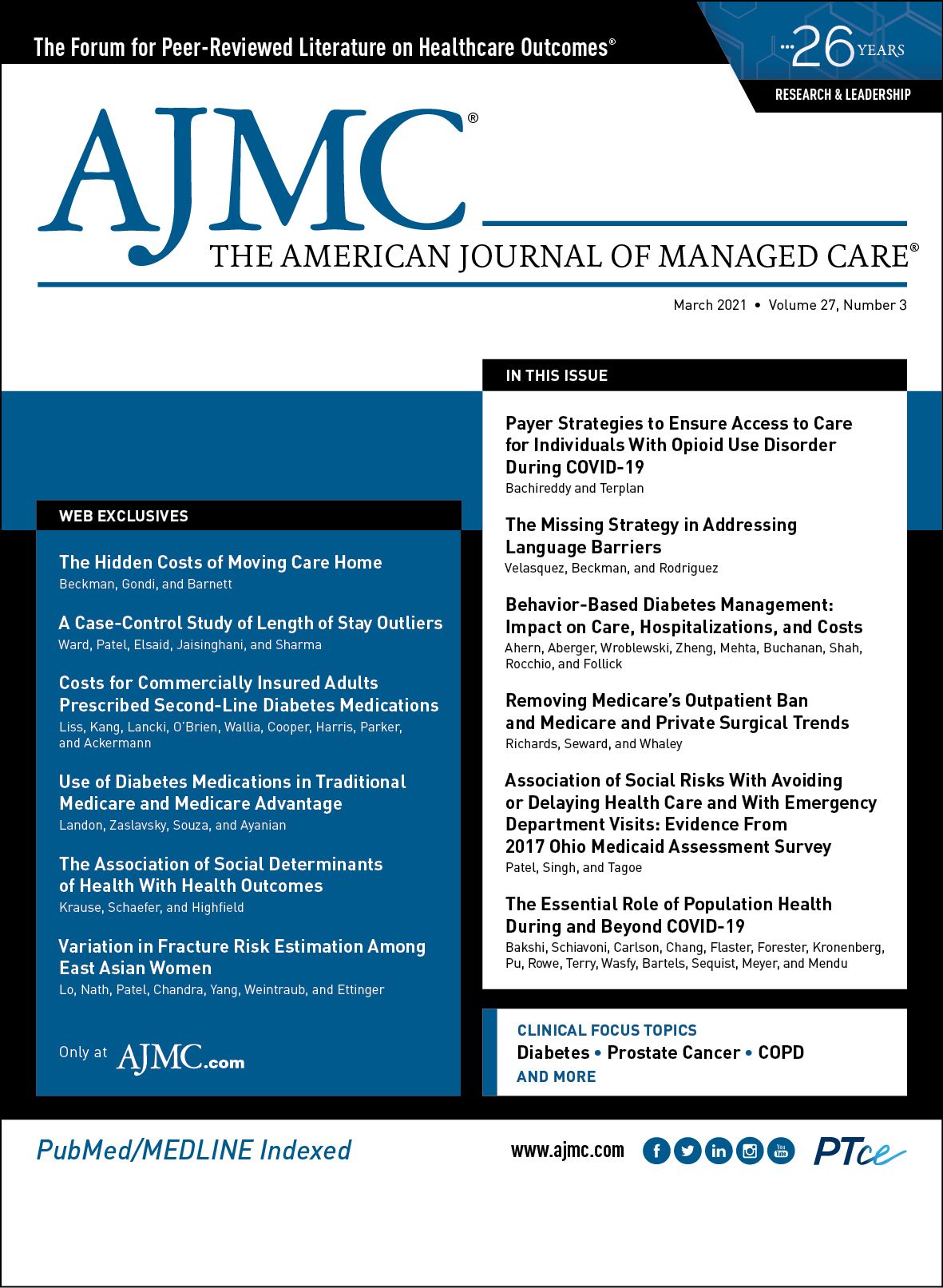- Center on Health Equity & Access
- Clinical
- Health Care Cost
- Health Care Delivery
- Insurance
- Policy
- Technology
- Value-Based Care
From the Editorial Board: Robert W. Dubois, MD, PhD
The coronavirus disease 2019 (COVID-19) pandemic has taught us many lessons, from the ways that communities can remain resilient from afar to the importance of clarity in public health communications, but perhaps none is as important as the need to address health disparities.
The pandemic has laid bare the gaps in our society. These gaps, by and large, are not scientific. Tests, treatments, and vaccinations work regardless of where one sits in society. But those advances are not available to all because of social factors that can—and that must—be addressed.
Homing in on social determinants of health (SDOH) as a key to better population health is not new, but the idea should only attract more attention as the Biden administration begins to take action on its campaign promise to put health issues, including COVID-19, front and center.
Tackling SDOH is an attractive approach to boosting health on a broad scale. There are clear associations between social determinants and outcomes. We know that low income is associated with poor health outcomes, that educational attainment is linked to outcomes, and that the same holds true for housing and access to healthy food and a dozen other factors.
It is easy to let those associations lure us into the false sense that nearly any intervention is likely to work, but the reality is that we have precious little high-quality data on where and how a specific approach can save lives or save money. If SDOH are to be a policy priority, then building the evidence base for SDOH must be job one. Good policy can only be led by good data.
Right now, we do not have enough good data. In the report “Access to Care: Development of a Medication Access Framework for Quality Measurement,” the National Pharmaceutical Council and the Pharmacy Quality Alliance looked at more than 2 dozen positive studies of various SDOH initiatives and found that fewer than 1 in 4 had a high-quality experimental design, and only 1 in 5 had sufficiently complete results. Although many of the studies were encouraging, the study designs provided little confidence.
Indeed, there are some cautionary tales of good ideas that, when subjected to proper scrutiny, did not live up to their expectations. Perhaps the most well-discussed is the research on “hotspotting” in Camden, New Jersey, which tested the incredibly promising idea of targeting high-cost patients with additional resources. It’s a great idea, but when subjected to a rigorous, randomized trial, investigators found that the intervention did not make a difference in readmission rates.
But the Camden experience was not a failure. It provided an answer—even a disappointing one—to an important question. It’s a model for how we should approach SDOH: Take a smart, stepwise approach to evidence generation in which we carefully assess whether an intervention improves health, whether the health improvement is worth the cost, whether the effort saves money, and what is the time frame in which benefits can be expected.
That’s neither a fast nor an easy process, but the alternative—setting policy based on good intentions rather than good evidence—is far worse. If we are to heed the lessons of COVID-19, we have an obligation to get SDOH research right by approaching the subject with a data-first focus.

Specialty and Operator Status Influence Electronic Health Record Use Variation
January 22nd 2026Operators demonstrated specialty-specific differences in electronic health record efficiency, timeliness, and after-hours use, highlighting how workflow and training shape documentation behaviors across medical disciplines.
Read More
Empowering Children and Parents Through Technology: Opportunities, Challenges, and Future Directions
January 15th 2026Digital health platforms improve pediatric care by offering customized, interactive tools for children and parents. They enhance education, support, and engagement while tackling challenges related to access, usability, and privacy.
Read More
Low-Value Services: Their Impact and Challenges With Addressing Them
May 2nd 2018Jason Buxbaum, MHSA, project manager, V-BID Health; and Robert Dubois, MD, PhD, chief scientific officer, National Pharmaceutical Council, discuss low-value services, their financial impact, what states are doing to address them, and challenges with addressing them.
Listen
Subjective and Objective Impacts of Ambulatory AI Scribes
January 8th 2026Although the vast majority of physicians using an artificial intelligence (AI) scribe perceived a reduction in documentation time, those with the most actual time savings had higher relative baseline levels of documentation time.
Read More
Telehealth Intervention by Pharmacists Collaboratively Enhances Hypertension Management and Outcomes
January 7th 2026Patient interaction and enhanced support with clinical pharmacists significantly improved pass rates for a measure of controlling blood pressure compared with usual care.
Read More
